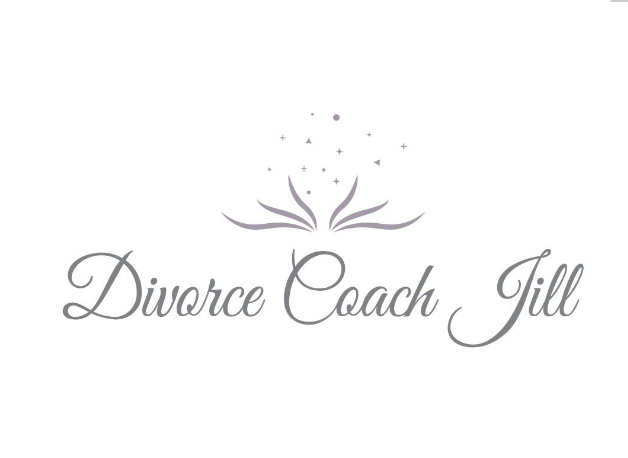|
Divorce is never easy, and it can be particularly challenging for parents. The process of separating from a partner can be fraught with emotion and conflict, making it difficult to come to an agreement on key issues. However, a friendly divorce is possible, even when you have children together. By approaching the process with an open mind, having clear communication, and a willingness to compromise, it’s possible to reach a resolution that is amicable and respectful to everyone involved.
Divorce coaching can be a valuable tool for parents looking to have a friendly divorce. A divorce coach is a trained professional who can provide guidance and support throughout the divorce process, helping individuals manage their emotions, communicate effectively with their ex-spouse, and work toward a resolution that meets everyone’s needs. We can also help parents navigate the practical aspects of divorce, such as developing a parenting plan, dividing assets, and creating a financial plan for the future. To have a friendly divorce, it’s important to approach the process with a mindset of collaboration rather than competition. This means being willing to compromise on certain issues, listening to your ex-spouse’s perspective, and being open to creative solutions that work for everyone involved. By focusing on shared goals and mutual respect, it’s possible to reach an agreement that meets everyone’s needs without resorting to hostility or litigation. Clear communication is also key to a friendly divorce. It’s important to communicate your needs and desires clearly and honestly and to listen carefully to your ex-spouse’s concerns. This means avoiding blaming or shaming language and instead focusing on finding solutions that work for everyone. A divorce coach can help parents develop effective communication skills and provide guidance on how to have difficult conversations with their ex-spouse. If you’re considering a divorce and want to have a friendly and amicable process, I can help. As an experienced divorce coach, I offer personalized guidance and support throughout the entire divorce process. I help clients manage their emotions, communicate effectively with their ex-spouse, and work toward a resolution that meets everyone’s needs. With my help, you can have a friendly divorce that allows you to move forward with confidence and a plan for a brighter future. To contact me for divorce coaching, visit my website at www.divorcecoachjill.com. You can schedule a consultation to learn more about my services and how I can help you through this challenging time. With my support and guidance, you can have a friendly divorce that allows you to maintain positive relationships with your ex-spouse and co-parent effectively for years to come.
10 Comments
Divorce is never easy, and there are always setbacks when you’re going through the process of divorce. A setback is when you think things are going okay but then something happens and you’re back in an angry, scared or sad place. Your soon-to-be-ex (STBX) may send a mean text or your child says something hurtful. You thought you had agreed on something and your STBX takes it back. Setbacks can be incredibly frustrating, but most people experience setbacks during the divorce process. Here are four ways to tackle setbacks during divorce.
1. Ask Yourself What Can You Learn? When you're thrown into a setback, for example your STBX sends a mean text, you can experience anger, frustration and sadness. Use that time to sit in your thoughts by journaling, talking through your feelings or drawing how you feel with art therapy. It can be very therapeutic to get those feelings out and figure out what’s behind them. Are you mourning the loss of your intact family? Are you blaming your STBX for all that happened in your marriage? If so, what can you take responsibility for? Ask yourself what can you learn from your marriage? When you think about what you can learn from your marriage, don’t focus on blaming yourself or your STBX. We all make mistakes and part of your personal growth journey is to understand what mistakes you made and do things differently. A lot of my clients say that they learned that they can’t trust anyone. But when you think about this further, you realize that there are trustworthy people and it’s not that you can’t trust anyone. It’s that you need to be more aware of who to trust. You may have allowed things to happen in your marriage that you shouldn’t have. You can do something about that - you can learn to set healthy boundaries. Maybe you realized that you weren’t as kind as you should have been at times. Taking responsibility for what you’ve done in your marriage will help you stop focusing on what’s out of your control (your STBX) and start focusing on what you can do differently in the future. You’ll stop feeling so much anger and you’ll start to process all of your feelings. By doing this, you will give yourself an amazing gift - the opportunity to heal. 2. A Setback Doesn’t Mean It Will Be This Way Forever When you experience a setback, it doesn't mean you're back to square one. A setback is a temporary situation that will be resolved at some point. But when setbacks occur, It’s hard not to let yourself spiral and have negative thoughts: “We’re never going to get through this divorce process!” “She won’t ever be reasonable!” “He always goes back on what he says!” These negative thoughts can lead you to feel awful as you go through a setback. But take a few deep breaths and center yourself. Tell yourself, “This is a temporary setback and I will figure this out.” If you feel calm and centered, you can find a way to get through the setback. Remember, you've come through so much already, you can get through this too! 3. Be Extra Kind to Yourself During a Setback When we are having a setback, we can become angry with ourselves - for getting married to this person in the first place, for making mistakes or for not getting out of the marriage sooner. We can get stuck in negative thought patterns that only make us feel worse. For example, you might tell yourself things like “I’m such a failure” or “I’ll never be able to find someone else.” These kinds of thoughts hold you back from moving on and rebuilding your life. Whenever you catch yourself thinking something negative, stop and replace it with a positive thought. Instead of “I’m such a failure,” try saying, “I’m learning from this experience, and I’ll be stronger for it.” Or instead of “I’ll never find someone else,” tell yourself, “I have a lot to offer, and I will find someone who appreciates me.” It may take some practice, but changing your self-talk is an important way to be kind to yourself. Keep in mind that you’re going to go through a roller coaster of emotions and that’s normal. You may not be able to function at your job like you normally do and that’s ok. Give yourself a break and be gentle to yourself instead of beating yourself up. Practice self-compassion. Give yourself time to get through this. You’re strong and you will overcome this setback! 4. Focus On The Present Getting caught up in worry and stress about the past or the future is common during a setback. Will you be able to support yourself financially? Where will you live? How will your relationship with your children change? Worrying about these things will make you anxious and stressed. Dwelling on the past won't do you any good either. One of the best things you can do for yourself during a setback is to make a list of things that make you happy. This can be anything from spending time with friends and family to taking a yoga class, developing a hobby or going for a walk in nature. Once you have your list, use it to form your weekly schedule and develop daily and weekly goals. This will help you stay in the present during any setback. Final Words Setbacks can be tough but if you ask yourself what can you learn, if you know that they don’t last forever, if you’re kind to yourself and you focus on the present, you can tackle any setbacks that you may encounter during your divorce. Remember, if you feel you need additional support at any point, don’t hesitate to contact a divorce coach or counselor. They will be able to provide you with the guidance and resources you need to get through this challenging time. Are you in control of your anger, or is your anger controlling you? During divorce, a certain amount of anger is normal and appropriate. But many people get stuck in their anger and have anger be your baseline emotion on a daily basis. When this happens, you may lose touch with your priorities and make poor judgments. Holding onto anger can feel like being in control but it can actually leave you bitter and result in you acting irrationally. Here are some clues that anger has hijacked your decisions during divorce.
What should you do if your anger has been calling the shots? Letting go of anger in divorce takes work. But identifying that it’s there is a positive first step! Anger usually covers up other emotions like sadness or disappointment. I recommend spending some time trying to get to the root of your anger and letting yourself experience the sadness and other emotions that might be behind the anger. Journaling or therapy are great ways to explore all of your emotions to find out what’s going on behind anger. Also, you can check out my blog - Letting Go of Anger in Divorce - to help you with this process. Divorce is painful. But the grief is compounded when you aren’t the one choosing it. Being in any situation you didn’t sign up for can make you feel out of control, angry and stuck. There are things you can do to move yourself to acceptance. As you work to accept a divorce you didn’t choose, you will be able find peace.
Here are specific things you can do to help get you through divorce and make it much easier on yourself: Surround yourself with support. Seek out people who have been through divorce as they will be able to understand you best during this time. There are a number of support groups, both online or in person in most areas. You can also find a divorce coach or therapist who can help you focus on healing and moving on. Don’t avoid your feelings. While it’s important to intentionally pursue fun and enjoyable things to take your mind off the divorce, you still have to make room for those painful feelings to surface. Unexpected divorce provokes many powerful feelings like rejection and shame. You’ll need to set aside some time to process them. Build your self-esteem. When you feel shame or rejection from a divorce you didn’t choose, it’s important to build your confidence back up.. You can do this by recognizing what you say to yourself - your “self-talk”. You can change your self-talk, listing and reminding yourself of your strengths, reciting affirmations daily until you believe them! Choose to learn and grow. There are always opportunities to learn and grow in life. What can you learn from this experience? Identify things that you did or mistakes that you made. Then, work to forgive yourself and work on changing your behavior. Don’t try to punish your ex. If you have children, this strategy will hurt them and yourself.! While it’s tempting, you’ll gain peace and stay true to your integrity if you don’t give in to the desire to act and speak out of anger to get back at your ex. “Holding onto anger is like drinking poison and expecting the other person to die.” -Buddha Work to feel and express your anger and then let it go. Journal, talk to a friend, divorce coach, therapist or join a divorce support group. Divorce that you never wanted can be devastating, but know that you are strong enough to get through it. Each day you get through proves that you’re stronger than you realize. Take it one day at a time. You can do this! Moving on from divorce isn’t easy for most people. You may feel overwhelmed, angry and sad and not know how to deal with these intense emotions. It’s difficult to start to find a new path for your life after you’ve spent many years building a life with someone and that person isn’t a part of your life anymore. But you will be able to recover and there are several things that you can do to build a happy and fulfilling life after divorce.
The first step toward moving on is to understand what went wrong in your marriage. This doesn’t mean that you assign blame, in fact it’s the opposite. Reflect on what was wrong in the relationship in a non-judgmental way. What was the relationship lacking? What needs weren’t met for you and for your partner? The more you understand your past, the easier it will be to start the process of letting go and moving on. It’s normal to feel grief when you’re going through divorce and it takes time to process those feelings. Processing feelings involves thinking about them, talking about them and possibly writing or drawing them. It involves feeling the feelings which is difficult and many people avoid feeling the feelings for good reason. Although it can be painful, if you don't process your grief you can get stuck and you won't be able to build your new life. Grief is processed by going through the following stages:
Journaling is one tool to help process grief. Writing down your feelings enables you to get out what you’re feeling so that you don’t stuff them. Stuffing your feelings can lead to anxiety, depression and physical illness. Also, counseling, divorce coaching and divorce support groups can be really helpful. I run a divorce group coaching program which helps people going through divorce find support from others going through similar experiences in a safe environment. Another way to move on is to set small, achievable goals each day. Maybe it’s a chore that has to be accomplished or starting a new project at home or work – what is your first step towards that goal? Setting small, achievable goals, builds your confidence and enables you to start a process of moving in a positive direction. These techniques take time and work. Having support while you go through this is one of the most important things you can do to get through this process so that you can move on in your life. But if you get your team of support behind you and work at this moving on process, you will be able to develop a happy and fulfilling life for yourself. It’s definitely worth it! The experience of divorce often involves intense feelings of anger. Whether it’s due to an ex’s behavior in the past or the adversarial divorce process, it’s tempting to hold onto that anger. However, letting the anger and pain dictate how you function each day will not help the healing process or get you where you want to go. It’s like trying to ride a bike with flat tires, you’re not going to get anywhere!
As good as it feels to point fingers at your ex’s mistakes, focusing on that will only create more animosity and won’t move you forward in your life. Yes, you probably have many reasons to be angry and frustrated at your ex but save those conversations for a therapist or a trusted friend. Don’t talk about it to your children, your attorney or your ex. Talking to your children will negatively impact them – they love their other parent and feel badly when anything negative is said about a parent. Talking to your attorney can cost you a significant amount of money. And talking to your ex about his or her mistakes will just escalate things and slow your progress in the divorce. So how do you handle all the anger and emotions? You need to have a place where you can process what happened. A therapist, a trusted friend or a divorce support group are all great options. I run a Facebook support group – Separation and Divorce Support Community – which is one good option. Once you’ve started to process all the feelings that you’re going through, it helps to put your intention on learning from the past instead of reacting to it. What have you learned from your relationship with your ex? What can you do differently because of this learning? Take the time to come up with a plan for yourself and what you want in your future. This may seem unfair because you weren’t treated fairly or you aren’t getting a fair deal. But what’s more important in life – fairness or peace? Fairness or happiness? If you could be happy and peaceful, what is that worth to you? With every door that closes, another one opens. Embrace this new opportunity as a new stage of your life with happiness, peace and hope. Your personal transformation is an exciting time with endless possibilities. Let go of the anger and go for what you want. You deserve it!! Most of the time, when a couple goes through separation and divorce, many angry and resentful feelings occur and it's difficult to see any way to forgive an ex-spouse. However, there are ways to work toward forgiveness. Not only will you benefit from forgiving your ex-spouse, if you have children, they will benefit tremendously.
Forgiveness involves a change of heart and occurs at different times for different people. Circumstances can impact the ability to forgive. If there was an affair, an addiction or some other betrayal, it may take longer to forgive. But there are many reasons to forgive your ex-spouse, including the impact that not forgiving has on you. “Holding onto anger is like drinking poison and expecting the other person to die.” Buddha When you hold onto anger, you’re hurting yourself. You can become stuck in the feelings from the past and it can hold you back from moving on with your life. In addition, it doesn’t feel good to be angry much of the time. It’s not good for people physically to be angry and to hold onto anger. Finally, it can negatively impact children when one or both of their parents are angry at the other. So how can you let go of your anger? The first step is getting it out. You can talk about it to a friend or therapist or write about it in a journal. Find a way to release some of the feelings and that will help you move on. Forgiving yourself is part of the process of forgiveness after divorce. Being angry with your ex may be a way for you not to look at how angry you are at yourself. You may feel guilt, remorse and shame. If you develop empathy for your ex-spouse, you may then feel worthy of empathy and forgiveness also, potentially leading to self-forgiveness. This can lead to a journey of healing and the ability to move on in your life. Although forgiveness may feel like the last thing you want to do, forgiving another and forgiving yourself may be exactly what you need. It will ultimately restore your personal power, reduce negativity and create peace in your life once again. |
AuthorJill Barnett Kaufman is a Divorce Coach, Therapist, Parent Educator and Divorce Mediator. She is an experienced professional who helps clients discover new ways to resolve a variety of challenges when considering divorce, starting the process of divorce or are already divorced. Archives
March 2024
Categories
All
|
|
|
|
Connect with us:
To get more information, click the button below:
For our privacy policy, click here, for our Terms of Use, click here and for our Disclaimer, click here.
|









 RSS Feed
RSS Feed
